Fund/Build/Scale
After working for years in early-stage startups and as a journalist, here are three hard truths I’ve learned: 1. Success in Silicon Valley hinges on connections, hard work and luck. 2. Startups often fail because founders lack fundamental business knowledge. 3. Real, actionable advice comes from those who’ve actually done it. There’s no such thing as “founder DNA.” If you’re willing to take on risk and invest years of your life in something that has maybe a 10% chance of paying off — less if you’re a woman or person of color — you can be a startup founder. Here’s why I founded Fund/Build/Scale: 1. To help founders make fewer mistakes. 2. To share successful strategies that can accelerate your go-to-market journey. 3. To inspire more people to see themselves as potential founders. There’s a lot of overlooked talent out there, and we are missing out. This podcast is for anyone who’s interested in learning the basic skills required to launch a startup, secure initial funding and transform an idea into a sustainable business. I’m talking to guests about everything: finding a co-founder, conducting customer discovery, recruiting early employees, developing a PLG strategy, fundraising when you’re outside a major tech hub — all of it. Interested? Subscribe to Fund/Build/Scale on all major platforms and follow the podcast on LinkedIn to get articles, excerpts, transcripts and more. Fund/Build/Scale is a production of Truth and Soul Media LLC.
Episodes
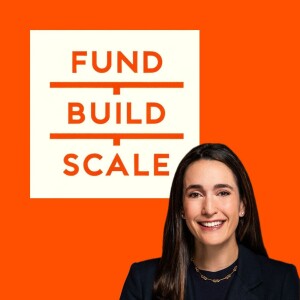
Monday Jun 23, 2025
Monday Jun 23, 2025
Uncork Capital Partner Amy Saper shares practical advice for early-stage founders building AI-enabled tools for engineering, product, and design teams, or as she describes them, "products that make you not want to quit your job."
Drawing on her experience in product marketing at Twitter, Uber, and Stripe, she explains why storytelling is an underrated founder skill, how to refine your ideal customer profile, and why it’s good to reverse-engineer a roadmap from your Series A goals.
She also shares tips for assessing founder/investor fit, when (and when not) to launch, and why she cares more about your conviction than your TAM slide.
If you're a technical founder looking to pitch smarter, launch better, and scale leaner, this episode is for you.
RUNTIME 40:46
EPISODE BREAKDOWN
(3:46) How Amy’s product marketing background informs her investor perspective
(8:45) Storytelling skill (and coachability) “ separates the mediocre founders from the exceptional ones.”
(12:02) “ I do tend to gravitate towards very technical teams. Sometimes they're all engineers.”
(15:16) A few questions Amy would ask a VC if she were an early-stage founder
(17:25) How she defines founder conviction — and the traits she looks for
(22:56) Identify your goals and targets, then work backwards from there
(26:55) “ I have a funny but also kind of real sub-thesis, which is products that make you not want to quit your job.”
(28:50) Thanks to new AI tools, “ we're seeing the rise of small lean teams that are achieving early profitability.”
(33:45) “ I am a sucker for a great deck or a beautiful presentation.”
(36:30) “ I care less about the overall TAM than how you're defining what's addressable.“
(39:27) The one question Amy would have to ask the CEO if she were interviewing for a job with an early-stage startup
LINKS
Amy Saper
Uncork Capital
SUBSCRIBE
📓 Get the Fund/Build/Scale newsletter on LinkedIn:
https://www.linkedin.com/newsletters/7249143254363856897/
📸 Follow Fund/Build/Scale on Instagram:
https://www.instagram.com/fundbuildscale/
Thanks for listening!
– Walter.
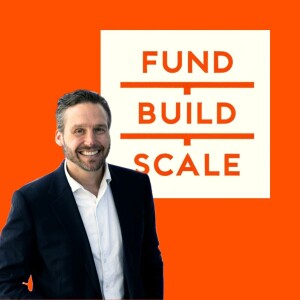
Sunday Jun 22, 2025
Sunday Jun 22, 2025
Ten Eleven Ventures CTO and Operating Partner Scott Lundgren shares practical advice for early-stage cybersecurity founders.
He explains why founder-market fit matters more than product polish, how teams should think about TAM in fragmented markets, and the signals he looks for in technical pitches.
He also breaks down how Ten Eleven’s network helps with diligence and customer development — and why “cool tech” often misses the mark. Plus: his take on the AI hype cycle, and why building credibility starts with listening, not pitching.
RUNTIME 38:06
EPISODE BREAKDOWN
(3:37) How founding an ISP as a teenager led Scott to a career in tech.
(6:06) Why he decided to join Ten Eleven Ventures as CTO/operating partner.
(9:53) Scott breaks down the essential elements of a cybersecurity pitch.
(14:31) Inexperienced founders, “as a general rule, have no idea about the TAM.”
(17:21) On AI hype: “ I'd like to see some more rigor with how we feel like we can start to quantify some of the benefits.”
(20:20) Having a global network of security professionals is “ a really great resource for us as a firm, but also for our founders.”
(21:51) Lessons learned from being on Carbon Black’s founding team.
(23:59) “ You need both of these things that are intertwined: the luck, and the the hard work.”
(26:08) Do customer discovery face-to-face, not over Zoom. “It isn't always productive, but there's no substitute for it.”
(30:57) Developing and promoting a startup mindset outside of Silicon Valley.
(35:30) “ If you build really cool tech to solve a pretty simple problem, then that probably was over-engineered.”
(36:11) How to build investor and future customer relationships — when you still have a job.
LINKS
Scott Lundgren
Ten Eleven Ventures
Carbon Black
SUBSCRIBE
📥 Get the Fund/Build/Scale newsletter on LinkedIn: https://www.linkedin.com/newsletters/7249143254363856897/
📸 Follow Fund/Build/Scale on Instagram:
https://www.instagram.com/fundbuildscale/
Thanks for listening!
– Walter.
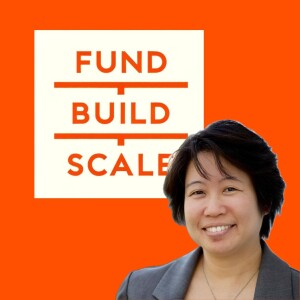
Thursday Jun 19, 2025
Thursday Jun 19, 2025
Construction workers spend hours on their hands and knees snapping chalk lines to mark where walls, plumbing and utilities should go. It’s painstaking, back-breaking labor. And that’s how it’s been done for centuries.
Tessa Lau saw an opportunity — and built a robot that does it faster, safer, and with surgical precision.
In this episode of Fund/Build/Scale, the Dusty Robotics founder and CEO shares some of what she's learned about transitioning from a researcher to a deep tech founder, including:
How she turned past startup mistakes into a rigorous customer discovery process
The structured approach Dusty used to land its first paying customer
Why she says stealth mode is overrated — and how building in public gave them a head start
How “cool tech” can lead you astray if you’re not solving a real problem
Smart ways to pivot and iterate based on actual user feedback
What it takes to build a mission-driven team that scales with you
If you’re interested in robotics, deep tech, or why some concepts fall into the valley of death while others sail over it like a Red Bull stunt team — listen in.
RUNTIME 43:10
EPISODE BREAKDOWN
(3:00) “ I always thought I would be a professor someday, and that was my planned career path.”
(5:39) How a home renovation project led Tessa into making construction robots
(9:16) “ We thought we were going to build a vacuum cleaning robot.”
(12:24) “You have to establish that someone is willing to pay for the technology and that it's doable.”
(14:15) “ We needed to build something that was 10x better than the status quo in order to scale at venture speed.”
(15:41) Finding a deep tech TAM is “ a hard problem, especially when you're creating a new category.”
(19:16) “ You can't try to be everything for everyone.”
(21:00) Their first prototype “could barely do anything,” but fast pilots helped them iterate quickly.
(26:08) How Tessa figured out their pricing *before* they went to market
(29:24) Why marketing and branding are table stakes for a deep-tech startup
(33:11) “ As the CEO, you are the face of the company whether you like it or not.”
(37:06) “ Our marketing team doesn't need to be very technically savvy.”
(38:22) “ I have yet to see a good reason to be in stealth, ever.”
(40:53) The one question she’d have to ask a deep tech CEO before accepting a job offer
LINKS
Tessa Lau
Dusty Robotics
Philipp Herget, CTO
IBM Research
Willow Garage, Wikipedia
“Savioke is now Relay Robotics,” 5/2/2022, The Robot Report
Crossing the Chasm, 3rd edition, Harper Books
SUBSCRIBE
📥 Get the Fund/Build/Scale newsletter on LinkedIn: https://www.linkedin.com/newsletters/7249143254363856897/
📸 Follow FBS on Instagram: https://www.instagram.com/fundbuildscale/
Thanks for listening!
– Walter.
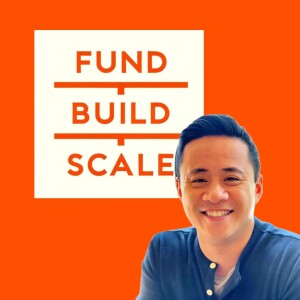
Friday Jun 13, 2025
Friday Jun 13, 2025
What happens when a team of legal veterans decides to rebuild the dispute resolution process from the ground up?
To find out, I interviewed Rich Lee, co-founder and CEO of New Era ADR, a platform designed to resolve legal disputes faster, at lower cost, and with less friction for both companies and individuals.
We talked about building a team that had enough credibility to sell into one of the most risk-averse industries, how they approached trust-building with both customers and investors, and how they're scaling a capital-efficient business in a category that’s been largely unchanged for decades.
Thanks for listening!
– Walter.
RUNTIME 39:46
EPISODE BREAKDOWN
(2:59) “ I'm an early adopter of, you know, anything.”
(10:03) “ The core problem: why does it cost so damn much to resolve a legal dispute in this country?”
(13:05) How Rich and his co-founders divided roles and responsibilities
(17:15) Hurdle #1: “ Challenging the underlying assumption that litigation and a legal dispute doesn't have to be two-plus years.”
(22:32) In the early days, New Era ADR developed multiple personas to overcome customer objections
(25:50) “ Fortunately, we didn't have to do a lot of POCs.”
(29:40) “ Our market's comically big.”
(30:03) Finding your SAM and SOM when the TAM is $350 billion
(32:22) Which came first: the pitch deck, or the revenue model?
(35:50) One question Rich would have to ask the CEO if he were interviewing for a role with an early-stage startup.
LINKS
Rich Lee
New Era ADR
The Future of ADR? New Era Bags $6.3m While Still at Seed Stage, Artificial Lawyer, 3/16/2022
SUBSCRIBE
📥 Get the Fund/Build/Scale newsletter on LinkedIn: https://www.linkedin.com/newsletters/7249143254363856897/
📸 Follow Fund/Build/Scale on Instagram: https://www.instagram.com/fundbuildscale/
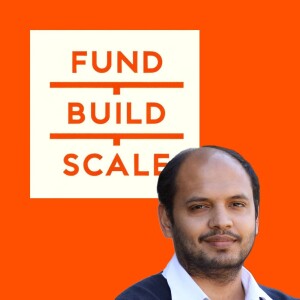
Monday Jun 09, 2025
Monday Jun 09, 2025
Before Postman became a category-defining platform used by millions of developers, it was a personal side project. In this episode, co-founder and CEO Abhinav Asthana shares how he went from hacking on API tools in Bangalore to leading a global company with nearly 900 employees across three continents.
We talk about:
Building a developer-first product that spread through word of mouth
Choosing a CEO when everyone on the founding team is an engineer
How to reach U.S. customers before you have a U.S. presence
Why authenticity beats thought leadership when you're building in public
Going from “ramen profitability” to Series A in just 17 months
Whether you're an engineer who’s thinking about starting something of your own, a founder operating outside of Silicon Valley, or just curious how Postman actually works, this episode is packed with tactical insights.
RUNTIME 49:19
EPISODE BREAKDOWN
(2:39) “ Being a developer who loved to hack and also design, I just decided to try my hand at this.”
(4:00) “ We had a hypothesis, but we didn't have a company.”
(6:08) Abhinav built goodwill with the developer community by being helpful
(9:26) How they settled on the name “Postman”
(11:51) On a team of engineers, how do you decide who should become CEO?
(15:00) Who was their first key hire outside of the founding team?
(20:15) Why he thinks early-stage startups should seek “ramen profitability”
(23:23) “ Our first marketing hire was about two years in.”
(25:18) What it was like to go from a seed round to Series A in just 17 months
(30:02) “ At that point, it kind of became clear that this is a new kind of category.”
(32:15) How Postman’s branding dovetails with the platform’s underlying technology
(36:13) One thing he would have done differently in the run-up to the Series A
(38:48) Managing cross-border growth when you’re based in Bangalore
(40:56) “ Building the company in two different places… it's just incredibly hard.”
(44:47) “ Don't skimp on two things ever in starting a venture-funded company: your lawyer, and your accountant.”
(45:52) One question he’d have to ask the CEO if he were interviewing for a job with an early-stage startup.
LINKS
Abhinav Asthana
Postman
Postman raises $50 million to deliver its API collaboration platform to more partners, 6/19/19, VentureBeat
SUBSCRIBE
📥 Get the Fund/Build/Scale newsletter on LinkedIn: https://www.linkedin.com/newsletters/7249143254363856897/
📸 Follow Fund/Build/Scale on Instagram: https://www.instagram.com/fundbuildscale/
Thanks for listening!
– Walter.
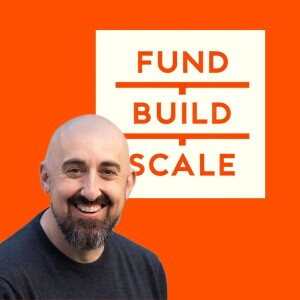
Friday May 30, 2025
Friday May 30, 2025
When Tony Stubblebine took over as CEO of Medium in 2022, the platform was burning $2.5 million a month, bleeding subscribers, and was overrun with content that left founder Evan Williams cringing.
Tony pitched Ev a turnaround built on small teams with access to data, customers, and the freedom to rebuild Medium like a startup from the inside out.
He wasn’t just another executive parachuting in — Tony had worked with him as head of engineering, later as a power user and publishing partner, and eventually, the person who convinced Ev that he could get things on track.
In this episode of Fund/Build/Scale, Tony explains how Medium became profitable for the first time, why the platform banned AI-generated content from its partner program, and how his long history as a user and advisor uniquely prepared him to lead the company through a delicate transformation.
RUNTIME 50:14
EPISODE BREAKDOWN
(3:41) “ I have a long track record of being associated with Medium for just strange reasons.”
(7:16) “ Maybe I'm crazy, but I thought on day one, ‘oh, this is a guaranteed win.’”
(9:52) “ I think CEOs are delusional, and some amount of delusion is probably healthy.”
(12:34) “ Precision is not possible without a combination of data science and user research or words.”
(14:30) Creating customer feedback loops in a 13-year-old company
(19:49) “ I would almost say there's no product to manage yet because we’re making it, and we’re making it together.”
(20:17) The two mandates Evan Williams gave Tony when he hired him as CEO
(24:23) “I knew even if we could grow subscribers, it would be on the back of this content that we weren't proud of.”
(25:45) Why Medium banned AI-generated content from its partner program: “ We're a pro-human product.”
(30:11) “ We love human moderation. We love our trust and safety team.”
(36:28) “ We're trying to be a place where a different set of writers will win on Medium than will win on these other platforms.”
(40:46) “ One hundred percent: Medium is for experience, not for influencers.”
(42:35) “ I really like to be a champion for what I would call ‘white hat content marketing.’”
(46:45) “ It's wild to me that the art of blogging has not been perfected this many decades into it.”
(48:17) “ It's impossible to understand how many niches there are.”
LINKS
Medium
Tony Stubblebine
Tony’s Medium profile
Mark Suster
Cal Newport
Flow: The Psychology of Optimal Experience, Mihaly Csikszentmihalyi
SUBSCRIBE
📥 Get the Fund/Build/Scale newsletter: https://www.linkedin.com/newsletters/7249143254363856897/
📸 Follow Fund/Build/Scale on Instagram: https://www.instagram.com/fundbuildscale/
Thanks for listening!
– Walter.
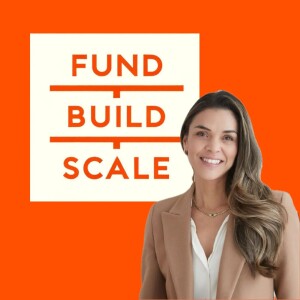
Tuesday May 27, 2025
Tuesday May 27, 2025
Rachel Springate is the founding general partner of Muse Capital, an early-stage venture fund focused on overlooked sectors like women’s health, wellness, parenting, gaming, and sustainability.
In this episode, she shares her strategy for finding value where other investors aren’t looking, explains how Muse assesses early traction in non-traditional markets, and breaks down the persistent funding gap facing women founders.
We also discuss:
How AI could transform women’s health
Why traditional VCs struggle to spot these opportunities
What needs to change to solve the “2% problem” in venture capital
Whether you're fundraising or building for an underserved market, this conversation offers tactical insights you can apply right now.
RUNTIME 49:49
EPISODE BREAKDOWN
(1:57) How Rachel connected with Muse Capital Founding Partner Assia Grazioli-Venier
(3:43) Why “care, live and play” are the sectors they’re most interested in
(8:04) “ Entrepreneurs struggle in this space because typically the people that are building are female or diverse — building for their own.”
(11:45) Many investors still don’t recognize that women’s health is a “ massive market opportunity.”
(14:52) What are some of the signals that tell her a founder is ready to work with investors?
(17:06) When it comes to domain expertise, “ our bar is pretty high.”
(19:47) Muse Capital’s process for analyzing market opportunities and evaluating founders
(24:26) How seed-stage founders should prepare for their first VC meeting(27:10) “When a founder comes in and says, ‘nobody's doing what we're doing,’ I'm like, ‘red flag.’”
(29:33) When it comes to women’s health, “ there's really interesting things that can be done with AI around unique data or proprietary data sets.”
(34:44) How is the current political environment impacting innovation/investment in women’s health?
(37:44) Why less than 2% of venture capital goes to startups led by women
(42:52) “ I do think we are going in the right direction. It's just gonna take a lot.”
(44:45) How to get more women into the VC pipeline
(47:45) If you could snap your fingers today and change one thing about VC, what would it be?
LINKS
Rachel Springate
Assia Grazioli-Venier
Muse Capital
SUBSCRIBE
📥 Subscribe to the Fund/Build/Scale newsletter
📸 Follow Fund/Build/Scale on Instagram
Thanks for listening!
– Walter.
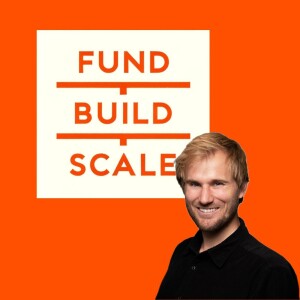
Thursday May 22, 2025
Thursday May 22, 2025
Fredrik Thomassen, co-founder and CEO of Superside, joins the show to unpack how startups can scale creative work without slowing down or burning out their teams.
Superside is a subscription-based design company that helps fast-growing teams get high-quality creative at scale. In this conversation, Fredrik shares how he built a globally distributed team, why async collaboration beats real-time meetings, and what most startups get wrong when managing creative work.
We also get into:
Hiring in overlooked markets
Building customer trust and employee cohesion across time zones
Structuring creative operations like a product team
Why treating designers as partners — not vendors — drives better outcomes
If you're juggling growth and messaging or just trying to build creative capacity without the chaos, listen in.
RUNTIME 44:58
EPISODE BREAKDOWN
(2:30) “ You start out and think, ‘I can do this for four or five years,’ and all of a sudden, a decade has passed.”
(4:32) Superside’s beta was popular, but “ it was a total mess behind the scenes.”
(7:36) Why “ it felt like an obvious move to go to YC.”
(11:15) “ We found product-market fit, and then kind of COVID hit at the same time.”
(14:17) The biggest mistake Fredrik made while adding headcount in the early days
(18:59) Working with a founder coach has been “scary, but also in a sense, very motivating.”
(21:39) Fredrik lists his preferred Norwegian authors
(25:29) Inside Superside’s pivot from freelancer marketplace to enterprise creative services
(29:40) “ What's growing at the moment is AI-powered creative services for our enterprise customers.”
(32:08) Quantifying the efficiency gai”s from using AI-enabled services
(37:53) How Superside collaborates with clients to provide strategic services and production work
(40:31) “ It's quite hard to build a lifestyle business.”
(42:40) The one question he’d have to ask the CEO before accepting a job offer with an early-stage startup
LINKS
Fredrik Thomassen
Haakon Heir
Jing Venås Kjeldsen
Superside
Y Combinator
Paul Graham essays
Hunger, Knut Hamsun
Jon Fosse
Karl Ove Knausgård
SUBSCRIBE
📥 LinkedIn: https://www.linkedin.com/newsletters/7249143254363856897/
📸 Instagram: https://www.instagram.com/fundbuildscale/
Thanks for listening!
– Walter.
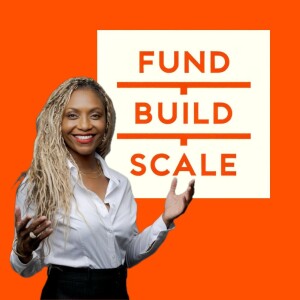
Friday May 09, 2025
Friday May 09, 2025
What makes a founder dangerous?
Not credentials. Not their pedigree. And it's not who they know.
For investor and former operator Promise Phelon, a dangerous founder is someone with lived experience, relentless conviction, and the ability to build something the world doesn't expect.
Promise is the founder and managing partner of Growth Warrior Capital, an early-stage venture firm that invests in founders building seed and Series A enterprise AI companies.
In this episode, she shares hard-won lessons from the founder’s seat and the investor’s table: how to turn capital scarcity into a strategic advantage, navigating the shift from founder to CEO, and why storytelling can’t replace traction.
We also talk about:
How to find the investors who already have reasons to believe
The “puzzle vs. mystery” framework for prioritizing execution
What a dangerous founder pitch actually sounds like
How underrepresented founders can cultivate an appetite for risk — without a safety net
If you're building in stealth, raising without a network, or just wondering how to scale yourself as your company grows, this episode will give you a framework and some momentum.
RUNTIME 59:08
EPISODE BREAKDOWN
(04:32) Promise talks about her path from operator to investor
(06:57) Inside Growth Warrior Capital’’s investment strategy
(09:25) What her typical work week looks like
(14:01) “We love the qualitative, but our goal is to get to the meat of what's going on.”
(16:36) How Promise prefers to be pitched
(18:21) Growth Warrior Capital has plans for a second fund in the works
(21:27) Why more founders need to evolve from being firestarters to fiduciaries
(25:13) Where inexperienced entrepreneurs need the most help
(28:13) “ We look for coachability in a founder. We also look for rigidity.”
(30:50) “ A dangerous founder is someone that you don't expect to come up and kick you in the teeth.”
(34:01) “ …So Kendrick Lamar is the soundtrack for every single investor meeting.”
(36:09) What it’s like to be pitched by a dangerous founder
(39:30) One myth about successful founders that’s holding people back
(44:23) How to cultivate an appetite for risk when you don’t have a safety net
(50:41) What happens when founders learn to make bold strategic moves
(53:09) ”As a founder, you're not trying to convince anyone of anything. It's a search problem.”
(57:14) Something Promise used to believe about venture capital that is just totally untrue
LINKS
Promise Phelon
Growth Warrior Capital
Almanack of Naval Ravikant
SUBSCRIBE
📥 LinkedIn: https://www.linkedin.com/newsletters/7249143254363856897/
📸 Instagram: https://www.instagram.com/fundbuildscale/
Thanks for listening!
– Walter.
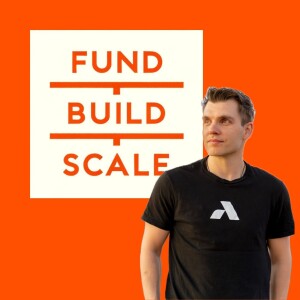
Wednesday May 07, 2025
Wednesday May 07, 2025
What kind of founder spends five years building a product before going to market?
One who's trying to solve a very hard problem.
Vince Gaydarzhiev is the founder of Alcatraz, a deep tech startup that uses facial authentication. The platform isn’t used to lock people out of single offices or consumer gadgets; its customers are buying global enterprise security, where compliance is strict, trust is earned, and failure isn't an option.
In this episode, Vince shares the emotional, strategic, and technical realities of building a company at the intersection of AI, hardware, and enterprise infrastructure. From working nights on prototypes with a tiny team to navigating founder isolation and breaking into risk-averse markets with no Silicon Valley network, Vince takes us inside the long game of building something real.
We cover:
Why it took three years to get a product into customer hands — and two more to scale it
Validating a deep tech startup when you're not an insider
What enterprise security leaders really care about (and how not to sell to them)
Why founder empathy and “becoming your customer” are non-negotiable in this space
The hiring philosophy that helped Alcatraz scale with high-agency, low-ego team members
How Vince de-risked himself to earn trust from investors and prospective hires
If you're building something technically ambitious or thinking about launching a startup in AI, hardware, or security, listen in.
RUNTIME 32:15
EPISODE BREAKDOWN
(2:35) Where the idea for Alcatraz came from and why Vince decided to take the leap
(5:51) His process for validating the concept with investors, customers, and security teams
(9:37) “I was surprised that this thing didn't exist yet.”
(11:48) Why it took five years to develop a “globally scalable” minimum viable product
(13:29) How much has his TAM estimate changed since entering the market?
(17:55) The pitch Vince used to recruit employees away from Apple and other top companies
(20:05) “ In 2016, investors were investing into companies purely on a deck.”
(22:18) “ I had zero network. It was my first time.”
(24:42) “ Many people mentally cannot take ‘nos’ in bulk. They get depressed, they feel it's personal.”
(26:50) Why the name “Alcatraz?”
(28:12) “ It's really tough to work with people that you don't like. Very tough. It's never gonna work out.”
(30:24) The one question Vince would have to ask the CEO if he were interviewing at an early-stage startup
LINKS
Vince Gardarzhiev
Alcatraz
Alcatraz AI Raises $6.1M in Funding for Frictionless Access Control, 4/27/2021, press release
Alcatraz AI Receives $25M Series A Funding to Accelerate International Growth, 9/13/2022, press release
SUBSCRIBE
📥 LinkedIn: https://www.linkedin.com/newsletters/7249143254363856897/
📸 Instagram: https://www.instagram.com/fundbuildscale/
Thanks for listening!
– Walter.

How to take an AI startup from idea to reality
The first episode of Fund/Build/Scale will be available in February 2024.
For transcripts, show updates and other exclusive content, follow “Fund/Build/Scale” on:
- Substack: https://fundbuildscale.substack.com
- LinkedIn: https://www.linkedin.com/groups/14341226
- YouTube: https://youtube.com/@FBSpodcast
- Eventbrite: http://fundbuildscale.eventbrite.com







